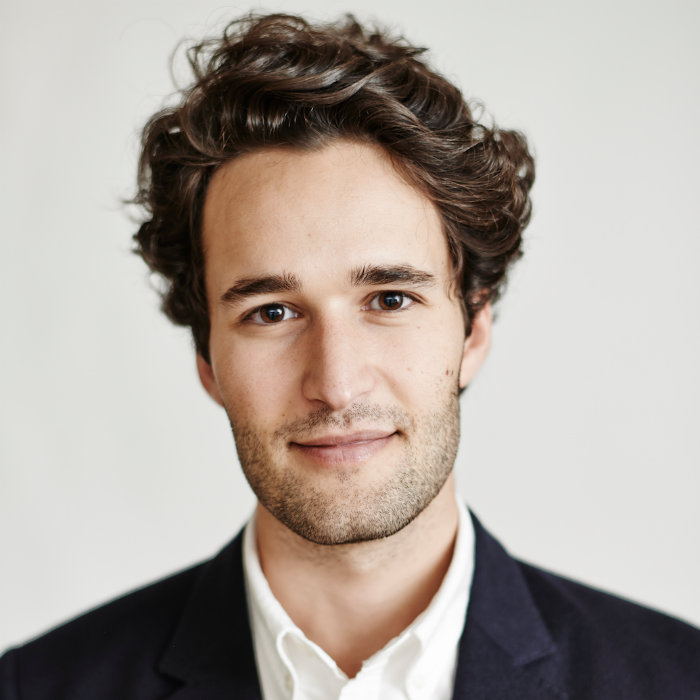Author and Oxford lecturer Daniel Susskind speaks to Andrew Harbison about what the future holds for accountants and other professionals.
Daniel was a speaker at the ICAS Conference 2016. The ICAS Conference 2017: Expect the Unexpected - How to Lead in a Changing World will take place on 20 September at the EICC.
“The thesis is, very broadly speaking, that we see two different futures for the professions, both of which rest upon technology,” says Daniel Susskind when describing “The Future of the Professions: How Technology Will Transform the Work of Human Experts”, the book he co-wrote with his father Richard Susskind.
The first future bears a striking resemblance to the present day. Professionals will use increasingly sophisticated technologies to enhance their traditional ways of working.
This future is an easily conceivable scenario. In fact, as Daniel himself points out, there are many examples of this happening today.
Teachers are publishing lessons and learning materials online. Doctors are connecting with their patients via Skype and architects are using sophisticated software to assist them in more intractable calculations.
Some of the most open minded institutions of people that we’ve spoken to are the accounting associations who very much see themselves having a role in this transformation.
The second future Daniel describes, however, is radically different from the first.
“Here technology doesn’t simply streamline and optimise that traditional approach, it actively displaces the work of traditional professionals.”

It is his view that “increasingly capable systems and machines” will begin to take on more of the roles that are usually associated with traditional professionals.
He predicts that many of these systems will be perfectly capable of performing tasks completely unsupervised, but this, he says, will not be the most radical change. Some of these systems will still require humans in order to function. He believes it is the people who operate these machines who will embody the most important evolution of the future.
These systems will be “designed and operated by people who look very unlike traditional professionals. It’s not a future where there’s nothing for people to do, but it is a future where the sorts of things that they do are quite different to what has been done traditionally.”
But before your inner Luddite boils to the surface, this will not be a “big bang revolution”.
Daniel said: “For now, in the medium term, these two different futures will develop in parallel. But in the long run we think that the second future will dominate, that we’ll find new and better ways of solving problems which traditionally only professionals would solve. This will lead to the dismantling of those traditional professions."
Rage against the machine
Having written a book detailing the dismantling and eventual replacement of centuries old professions, it may not come as a surprise to hear that not everyone welcomes Daniel and his father’s thesis with open arms.
He admits that there has been a “great deal of resistance” towards the predictions that are made in his book. However, there is one group of professionals who have been particularly perceptive to his vision of the future.

“Some of the most open minded institutions of people that we’ve spoken to are the accounting associations who very much see themselves having a role in this transformation.”
The accounting profession understands the “need to help educate and prepare professionals for this new future”, something that Daniel hopes more professions will realise.
The future is now
Today we live in a world that is driven and powered by the fluid advancements in technology. Although Daniel discusses the changes in the way we will perceive professions in the future, he sees the present day as “one of the most remarkable periods of technological change”.
He added: “We have at our fingertips systems and machines that were simply inconceivable five years ago.
“On eBay, every year 60 million disputes arise and those disputes are resolved online without any traditional lawyers using what’s called an e-mediation platform. That’s 40 times the number of civil claims that are filed in the entire English and Welsh justice system resolved online without any traditional lawyers.”
Just because you can, doesn’t mean you should
No matter how sophisticated and advanced technology may become in the not too distant future, there will always be the questions surrounding the level of influence they have over people’s lives.
“Many of us feel intuitively uncomfortable at the idea of a machine making a decision to turn off a life support system in a hospital. Even though it may be able to make a more efficient or more effective decision about the allocation of finite resources across a give set of patients.”

Although this is an extreme example, it helps Daniel outline the propensity for professionals to be perceived as possessing a higher level of ethical understanding than those out with a profession.
He said: “There is a tendency to often conflate the division of expertise in society, who knows the most of these particularly difficult problems, with a division of moral expertise as well. Who is capable of behaving good or rightly or justly?
“We need to be careful that we don’t fall into a trap of assuming that the professions have a monopoly over good behaviour”.
